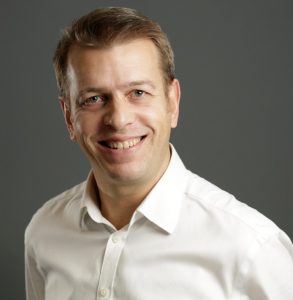This week in Condatis ‘Meet the Team’ we speak with our CEO, Chris Tate. Chris joined us December 2019, and just got his feet under the table when COVID-19 changed the way we work forever.
Chris, leading a new team in a time of crisis must be difficult. Tell us about it.

So, taking over as CEO of Condatis in a global pandemic is unexpected! In my 20 years in business, one couldn’t have expected COVID-19. Without question, it’s been a challenge, and we’ve had to find solutions. With a global pandemic, the first priority is the safety of our staff, so we closed our offices in early March to minimise the risk to staff and their families. It’s then about making sure our staff have a good home-working environment and communicating so everyone knows what our priorities are.
At the same time, we need to be mindful of business priorities. There is both a health issue and a global economic challenge going on right now, so we need to make sure we’re listening to customers’ needs and responding quickly.
Getting to know a whole new team can be difficult – has doing that remotely proved more so?
I think there are two building blocks that we have at Condatis. The first is we had good team interaction prior to the pandemic and, although I’ve only been with the company since December, I had time to get to know everyone face to face. We have a strong, highly skilled team that worked together well, which has really helped.
The second is the tools and facilities we have to do our job. We are very well set up as a digital company to work effectively remotely. If this pandemic had hit five or 10 years ago, remote working would have been much more difficult but today we’re able to stay connected much more easily.
It’s also about recognising the human aspect. People have different family circumstances and as an employer, we need to make sure that people manage their work in balance with their own mental health and family priorities.
As a CEO, one of the challenges is managing across all aspects of the business, with their own priorities; so it’s essential to keep close alignment with colleagues and peers. For me, it’s always been about planning and communication. A global pandemic shows there are times when plans need to adjust, fast, so the day to day communication is very important. At the end of each day, I have a get together with my direct reports so we can consider what we’ve achieved that day, what the relative priorities are, what we’ve done well – and make sure this is a learning process going in the right direction. It’s also important to have a touchpoint so people can talk about what’s affecting them: I don’t think everyone has a linear trajectory on how they’re performing on a day-by-day or week-by-week basis, so it’s important that we understand when staff are having a good day but also when it’s more challenging.
Looking ahead, what do you see as the challenges and opportunities?
We’ve seen that the way people work is changing, and maybe the days of thousands going into an office or factory is declining. This means there’ll be more people working remotely, so there’s a need to help businesses do that in a safe and effective way. Part of this is establishing good identity and access management so businesses have a strong front door to their services and protect their customer data.
In the innovation space, the opportunity for self-sovereign and decentralized identity is here now. We’re working to build-out a UK-first SSI (self-sovereign identity) demonstrator that could be used to support JML (Joiner, Mover, Leaver) across a number of sectors and that’s tremendously exciting.